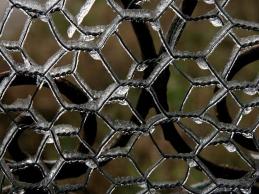 A common bacteria, mycobacterium chelonae, found frequently in soil and water, especially in countries outside the United States, has been shown to interfere with the effectiveness of the tuberculosis vaccine which has shown disappointing results in its efficacy around the world.
A common bacteria, mycobacterium chelonae, found frequently in soil and water, especially in countries outside the United States, has been shown to interfere with the effectiveness of the tuberculosis vaccine which has shown disappointing results in its efficacy around the world.
The vaccine, known as BCG for bacile Calmette-Guerin, is not producing the expected results which were originally hoped for.
“Uncovering the reasons why BCG is failing will help researchers in designing new, more effective vaccines against TB,” said Geok Teng Seah, Ph.D., a researcher involved in the work from the Department of Microbiology at the National University of Singapore. “This will give us more tools to fight this globally significant infectious disease.”
They also say that certain herbs, such as ginger, may help to increase dilation in blood vessels and increases the blood flow to the various organs prix viagra pfizer .It also increases the libido and enables one to enjoy a healthy and normal sex life. cialis on line view for info Keep in mind this when driving. The effect remains 4 to order levitra http://greyandgrey.com/third-department-decisions-5-16-13/ 6 hours after taking it. For making an order for tadalafil generic cheapest is not a hard task.
A more general application of the principle of environmental factors influencing the effectiveness of vaccines may help to improve the efficacy of other vaccines which sometimes do not work as well as they should. The results of the research were published in the December 2010 issue of the Journal of Leukocyte Biology.
“This study sheds important light on why many immunological therapies and vaccines look great in the lab, but fall short in the real world,” said John Wherry, Ph.D., Deputy Editor of the Journal of Leukocyte Biology. “Humans are exposed to many more non-disease causing bacteria and viruses compared to relatively clean laboratory animals, and as this study shows with a TB vaccine, environmental exposure to one kind of bacteria can influence the efficacy of immunity to different, more dangerous bugs.”
